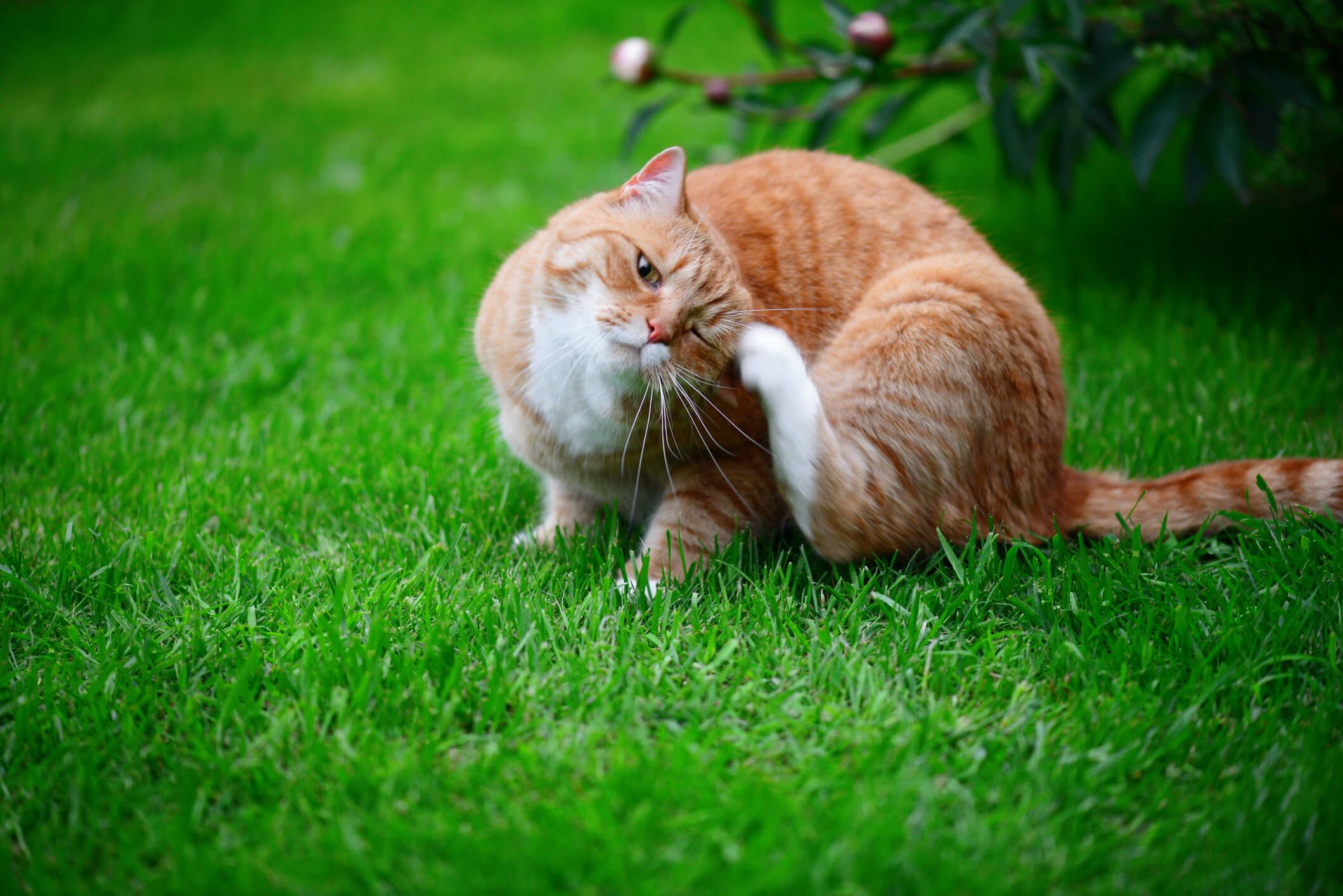
4 Common Irritants That May Cause Your Cat to Itch
A scratch or two is nothing to worry about, but if your cat is constantly attacking red, swollen and itchy skin, it’s time to see the vet. Although it’s somewhat uncommon among cats, itchy skin can be a sign that your furry friend is allergic to something.
Treating allergies quickly prevents further skin irritation and relieves your pet from discomfort, but how do you know what’s to blame? Here are the most common skin irritants in cats and the steps you can take to limit your cat’s exposure.
What are feline allergies?
Feline allergies are pretty similar to those that affect humans. They’re caused by an overreactive immune response to a specific allergen. Your cat could be allergic to food, perfumes, pollen, dust or even medications. A veterinary dermatologist will have to perform a skin test to determine which allergens are causing your kitty discomfort.
No matter the cause, nearly all cats with allergies show symptoms on their skin. The skin will develop a red, swollen rash or bumps accompanied by nonstop itching. As a result, your cat’s fur might thin out and may even reveal some bald spots. Cats with itchy skin also display excessive licking, chewing and biting.
Certain areas of the body are usually affected more than others. These include the head, neck, stomach, inner thighs and base of the tail. Unfortunately, vets can’t use symptoms to determine which allergies cats have. Irritated skin merely displays the presence of allergies, and it’s up to the vet to figure out which treatment plan is necessary.
Allergens that cause itchiness

Any number of environmental factors can trigger an allergic reaction in your cat. Some are easy to avoid, such as certain foods and medications, while others like dust mites and pollen remain a constant presence in your kitty’s living space. Here are the most common reasons why kitties can’t stop itching:
- Fleas: Fleas are pests would make any cat itch. Most felines scratch, lick or bite only where flea bites are present. However, cats who are allergic to fleas will experience unbearable itchiness all over their bodies. It’s often hard to tell if the cat is allergic to fleas or something else because excessive grooming removes eggs and adult fleas from the skin.
- Perfumes: This doesn’t simply refer to the perfumes that we as humans spray in order to smell good. Fragrances are in everything from laundry detergent to air fresheners to cleaning products. In addition to itchy skin, your cat may also avoid areas of the house where the scent is strongest. Some cats are even allergic to deodorizers in cat litter, so it’s worth trying different kinds to see if that alleviates their symptoms.
- Plants: Cat owners may notice their furry friends are itchy after exploring the great outdoors. If this is the case, your cat is probably allergic to grass, pollen or trees. Seasonal symptoms are a key indicator that your cat is allergic to plants. Cats with seasonal allergies get itchy mostly when pollen counts are high.
- Food: Food allergies are the hardest to diagnose because trial and error is required to pinpoint which ingredient is triggering the allergic reaction. Under a vet’s guidance, owners have to introduce one ingredient at a time back into the cat’s diet and observe how they react over the course of weeks.
Natural allergy treatments at home
Unfortunately, feline allergies can’t be cured. The best a cat owner can do is minimize symptoms as much as possible. At-home care is tailored towards your cat’s specific type of allergy. For example, cats that are allergic to dust mites require clean air filters in the home that are changed on a regular basis. Air conditioners help cycle clean, fresh air throughout the home, as well.
Other cats are triggered by outdoor allergens such as pollen and grass. If this is the case for your kitty, limit how much time they spend in the backyard, especially when there’s a high concentration of pollen circulating. When they come back inside, wipe your kitty’s fur with a damp cloth to prevent allergens from entering the home. Consider keeping the windows closed, too.
A restricted diet is the best way to prevent food-related allergy symptoms from flaring up. Your vet may recommend a diet primarily of novel ingredients like duck and white potato until they can determine which specific ingredients are causing the issue. Some kitties do just fine with hypoallergenic cat food from the pet store, while others only respond to prescription foods available through your vet.
A little bit of itchiness may not sound like a big deal, but in rare cases, symptoms can lead to skin infections and even become dangerous to your cat’s overall health! By identifying and treating your cat’s allergies, you’ll provide them much-needed relief from the pain and allow them to live their best kitty life.


